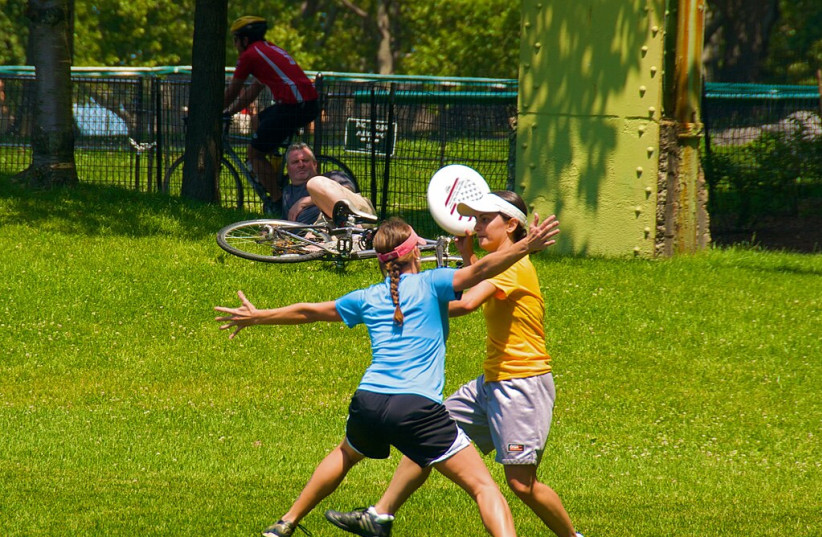Noam Elyashar doesn’t fully know how he became the coach of the Israeli national Ultimate Frisbee team.
“I’m not quite sure how it happened. I used to be a basketball coach, but I’d always been in the frisbee scene,” he said. “Then in 2010, they had a youth team without a coach and told me ‘just come’ so I tried it out and it happened. After my second or third year, I just got the hang of it.”
This weekend, the 21-man Israeli squad will head to Ireland for the European Ultimate championship, a six-day, 17-team tournament featuring the top European teams.
And Israel’s sudden ascent to the European stage is just as mysterious as Elyashar’s. This year is the team’s second time representing Israel in the Euro championship, the first coming in 2019 in which they finished 16th out of 20 teams.
What is Ultimate Frisbee?
The Israeli Association for Frisbee Sports was created in 2010 to oversee the sport’s development in Israel. Since then, many Israeli youth teams have featured in international competitions, but the association has struggled to field a competitive adult team.

“Our main problem is that nobody knows there’s Ultimate Frisbee in Israel,” Ayelet Ben Zion, the association’s CEO, told The Jerusalem Post. “We’re looking to enlarge the popularity of Ultimate here and teach the values of the sport.”
Ultimate Frisbee is a fast-moving, 7-on-7 non-contact team sport. It is played without a referee, and the players on the field are responsible for mediating disputes over fouls or violations.
“You need to handle yourself with composure and know how to communicate, which I think is very important for sports and for all over.”
The association currently has around 600 registered players, and puts on several after-school programs in cities across Israel, specifically Tel Aviv, Haifa, and Ra’anana.
Speaking on the team’s development over the years, Ben Zion explained that one unique obstacle the team faces is the IDF’s service requirement, which interrupts a player’s transition from the youth teams to the adult squad. Most of this year’s adult team is composed of players from the youth teams of past years.
Still, many of the players on this year’s team are active IDF members, and fit team practices and training sessions around their daily schedule.
One way Elyashar describes his coaching style is “a lot of yelling.” But according to him, it’s a trait his players appreciate.
“I yell a lot, I do. But they prefer the yelling because it keeps everything in line,” he said. “This year when I didn’t yell a lot, players came to me and said they were looking for the army sergeant.”
Elyashar’s role as coach is especially important considering that the Israeli team has just one professional player, Tal “Toasty” Osri, who plays in a league in Italy. Some of the teams that Israel will be facing are made up entirely of professional players, who have far more experience in tournaments and in practice.
Nonetheless, what Israel lacks in experience it looks to make up with determination.
“This is a highly motivated team,” Itay Chechik, a longtime member of the team said. “I think everyone feels that we’re more competitive right now than ever, so everyone is pretty keyed in. We’ve tried to have as many practices as possible the last month and a half.”
The Israeli team will compete in the “open” division of the tournament, meaning that both men and women are permitted to play on the team, although the Israeli team does not have any women. The other divisions are women’s and “mixed,” which requires a certain amount of men and women on the field at all times.
Elyashar acknowledges that Israel is an underdog, but it’s a title he embraces.
“We’re not gonna lay back and let anyone beat us. We have a fighting chance against a lot of teams and we’re prepared to win games.”
